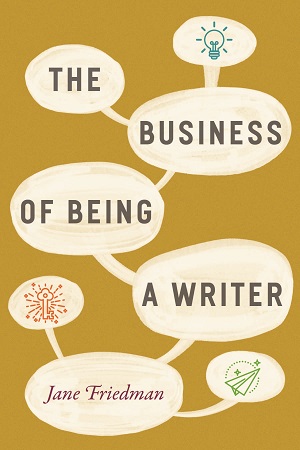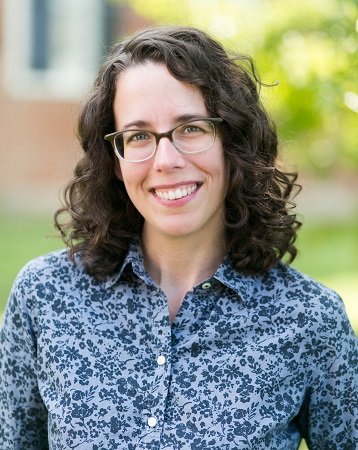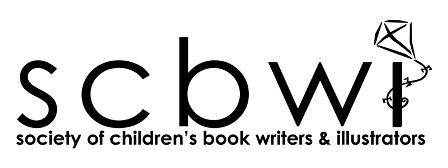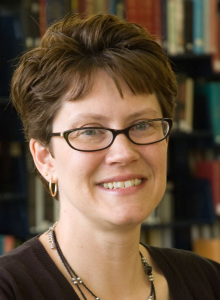We first met Jane Friedman online, which is where she is a lot. And quite brilliantly, she’s carved out a very cool corner of the publishing world by taking deep dives into analytics and numbers revolving around the Internet and books. We subsequently got to hang out with her in person recently at the Erma Bombeck Writers’ Conference — which is, in fact, one of the great writers’ conferences in America! She was a panelist on our event, Pitchapalooza, and as always, was a font of wisdom. Yet another reason to go to great writers’ conferences: You meet the most amazing people. So we thought now that her new book The Business of Being a Writer is out, we’d pick her brain about writing, publishing, and what it takes to flourish in the brave new world of books.

The Business of Being a Writer, by Jane Friedman
The Book Doctors: Tell us about your new book and why writers should have it on their nightstand.
Jane Friedman: Let’s rephrase that and ask why the book should be on a writer’s reference shelf. I’d hate to think of a writer trying to relax before bed while reading this tome on business!
It’s essentially the business education that writers rarely receive, especially if they’re creative writing students. In fact, that was my driving motivation to publish the book: to reach writers early in their careers, before bad expectations or mythologies have the chance to take hold. Every writer should be told, upfront, what it means to earn a living from writing, and that it rarely happens through book sales — especially if you’re writing literary fiction, which is the case with so many creative writing students.
So this book acts as a wake-up call and then — once that message is delivered — as a reference book on the publishing industry.
TBD: What was it like being published by a great university press?
JF: Slow! LOL. But good things take time, right? One of my first managers in publishing once told me, “Pick two: good, fast, cheap.” Hmm, I guess my book is only one of those: good! That’s probably everything one might need to know about university press publishing, but this book found the right home.
TBD: Your idea of “Literary Citizenship” is so compelling! Tell us more about what habits a good literary citizen should have.
JF: I can’t take credit for it — I first learned of literary citizenship from Cathy Day, a writing professor at Ball State. Some say the idea originated with the editor of Tin House. Whoever is responsible, the essence of it is: (1) spread the word about the writers and publications you enjoy or appreciate and (2) support those who make such literary activity possible.
Spreading the word can be as informal as writing an online review, posting pictures on social media, or buying books as gifts. Supporting those who make literary activity possible includes patronizing your local library or bookstore, going to readings, and subscribing to literary journals.
Bottom line: Don’t be quiet or shy about the writing, authors, or books that meaningfully affect your life.
TBD: A lot of writers don’t understand what an author platform is. And many of those who do often seem intimidated by it. Could you please illuminate the idea of platform, as well as the why and how of it?
JF: Platform is your visibility to a readership who will read or buy your books. It’s intimidating to many because this visibility often gets simplified, incorrectly, as “You have to be on social media” or “You have to market yourself.” But being on social media to market yourself doesn’t contribute meaningfully to platform building. And marketing by itself is not platform building.
First and foremost, publishing more work contributes to your platform. The more you publish, the more potential readers you have. That’s where platform starts. So if you’re intimidated by it, then know that just being prolific can make up for a host of weaknesses in other areas.
So what are those other areas? Being able to build relationships (the dreaded “networking”) contributes to a strong platform. The writing program you graduated from and the online classes you take are often the first ways a new writer builds a platform. Your platform includes all those relationships that might contribute to your professional development, or help you get published, or market your work.
A Platform is usually built through a series of small, consistent steps over time — of increasing the visibility of your work, who sees it, and who shares it. It’s possible to be calculated about it, but if it stresses you out, then your best bet is to return to the writing. With some experience under your belt, you might feel better prepared to take more intentional, strategic steps — like attending certain conferences, being more focused on how and where you publish, or sharing aspects of your work on social media.
TBD: How have you made your Web site such a go-to resource for writers?
The same way that a platform is built: small, consistent steps over time. My site was not a go-to resource back in 2010. But when you post content that’s useful to people every week for seven or eight years, word gets around. That’s the heart of platform building.
I also rank well in Google search for the questions that I know writers frequently ask. I intimately know my audience and what information they need, and I’m not afraid to give it away. I have a strategy for what’s free and what’s paid.
TBD: We heard somebody say recently at a writers’ conference that every author absolutely has to have a website. But in our experience, if you have a sad little website that hasn’t been updated and no one goes to, it can actually be a detriment. What are your thoughts regarding this?
JF: It depends on the context and who you’re trying to impress, but if I had to offer a general answer, I’d say no. Just about any author website is better than no website, assuming it functions.
Most author websites don’t need to be updated that often. The most critical pages detail your books or publications, your bio, and your contact information. There doesn’t need to be an active blog, an updated calendar, etc., although kudos if you take the time.
And frankly it doesn’t matter if your author website is getting little traffic. That only says you don’t have many readers yet or aren’t generating much interest in your work — at this moment. What if tomorrow someone at the New York Times writes a review of your long-lost, out-of-print novel about a binge-drinking teenager who becomes a judge? I’d really want an author website in place so I could take advantage of interest from the media or readers.
Author websites remain a life-long work in progress. One of the benefits of having one, even if it’s not that good, is that you at least have something to build on, plus you have been pushed to think about presenting your work and yourself in a public forum. Anyone serious about his or her career ought to have one, no matter how modest — unless you’re trying to be less accessible and put up a few barriers, like Jonathan Franzen.
TBD: We keep hearing the word “discoverability” when it comes to books. What are some ways that writers can help their work get discovered?
JF: There are traditional forms of discoverability and digital-age forms. Traditional discoverability would be scoring a major review, getting media coverage, going on tour, and so on.
These days, most people are concerned with digital discoverability, which relates to algorithms and social media. Let’s say you’re a cozy mystery author who has a scrapbooker protagonist, and your readers are a cross between those who read mysteries and are interested in crafts. If that person visits Amazon or Google and searches for that type of work, your books ought to come up. If they don’t, you have a discoverability problem.
You can improve your discoverability by ensuring your book is categorized correctly at bookstores/retailers, and that the book’s metadata and marketing description are accurate and speak the reader’s language. You should have an understanding of what keyword phrases your readers might use to describe your work, then double check your book description to see if those phrases are included. More on that here at Publishers Weekly .
TBD: Tell us about The Hot Sheet.
JF: It’s basically Publishers Lunch for professional authors.
For those unfamiliar with Publishers Lunch, then here’s the longer explanation: Many people have asked me at conferences how they can stay up-to-date on changes happening in publishing. They’re confused and it feels like everything is changing so fast, especially in book marketing. And that’s true. For instance, the Amazon of today is quite different from the Amazon of just a few years ago. Self-publishing is a legitimate means to establishing a career, but the services surrounding it remain volatile — publishing services going out of business, merging, changing terms, and so on.
So The Hot Sheet is an email newsletter (now entering its fourth year) available only by subscription, delivered every other Wednesday. If you find it difficult to keep up with the changes underway in publishing, or (you) wonder who’s “right” about controversial issues, The Hot Sheet helps you make sense of what’s happening. We have no agenda or bias other than helping writers understand the business they’re operating in. We try to offer a 360-degree perspective on issues relevant to traditional and indie authors, with bottom-line takeaways — with trends and news not often covered by the major industry publications.
TBD: We read that the greatest area of growth in publishing is audiobooks. What can an author do to help his or her audiobook succeed? And is there any shame in listening to books instead of reading them?
JF: There is no shame in listening to books.
The best way to help your audiobook succeed, if you’re producing it yourself, is to choose the right narrator or voice talent. That makes all the difference in ensuring people will listen without stopping after five minutes. Authors are rarely the right voice talent for their own work, so don’t be eager to do it yourself unless a professional in the audiobook industry thinks you should.
If your publisher is producing your audiobook, the best thing you can do is simply make everyone know it’s available. List it on your website, mention it on social media, link to it as regularly or consistently as you would a print or e-book edition.
TBD: Mental health is, rightfully, a major topic in the news today. What are some positive life skills you want aspiring writers to follow so they can succeed responsibly, without unhealthy expectations? How do we stop that voice in our head that screams at us that everything we write SUCKS?
JF: The first step is to acknowledge the voice in our head is not an authority. It arises from layers of absolute crap that have been fermenting over the years, put there by every hurt we’ve experienced, every failure, every negative comment written in the margins, every I’m-not-enough feeling. However, the voice is also there to protect us and help us avoid embarrassment. Sometimes it’s not entirely wrong.
The best life skill a writer can have when feeling anxiety (which is inevitable), when feeling envy (which is inevitable), when feeling drained (which is inevitable) is to acknowledge the feeling for what it is (“I see you, okay”), give it a label (hashtag it even, #writerenvy #writeranxiety), take time to meditate on where it’s coming from, then get back to work. Focusing on the work is usually the best antidote to whatever ails you. If it’s the work itself driving you mad, either step away for a while, find another project, or identify a nonjudgmental helper who can problem solve with you.
TBD: As a veteran in the field, what are your writing habits? How have they changed over time?
JF: As my available time has decreased, I’ve had to set up strict blocks of writing time. It’s best for me to write during the first half of the day before I dig into emails, social media, or client work. Otherwise, anxiety or stress about other aspects of work-life can prevent me from achieving the focus needed to write.
TBD: What are common traps for writers?
JF: A couple of the biggest:
(1) Thinking that great work will rise to the top. It will not — and there are a million reasons why it might not: bad timing, bad market conditions, bad geography, bad etiquette, bad luck.
Artists tend to think that great work speaks for itself — or that it doesn’t have to be, or shouldn’t be, marketed. Unfortunately, the stories we often tell about artists are rarely the ones where they strategically engineered their success or demonstrated business prowess. They exist, though — and these are the stories I like to tell when invited to speak at conferences. We need to hear more about how George Eliot strategized to earn more money from her publisher, or how Mark Twain sold his work in unfashionable ways.
(2) Thinking that art and business can’t coexist when the friction between the two can be productive, even desirable. In the literary community especially, it’s thought that “real” writers shouldn’t have to market — that’s the publisher’s job, or at least someone else’s job. This kind of thinking ends up hobbling only the writer and the sustainability of the career he or she has chosen.
TBD: What books, resources, and authors inspire you in the Business of Being a Writer?
JF: I enjoy the resources and perspective provided by people like Austin Kleon (Show Your Work), Ilise Benun (posts and courses on pricing), Alain de Botton(everything), Richard Nash (“The Business of Literature”), Paul Jarvis (his email newsletter), Elizabeth Hyde Stevens (Make Money Make Art), David Moldawer (his email newsletter), Nicole Dieker (posts and podcast on writing and money), and Jessica Abel (her blog and courses). This is not an exhaustive list, but they’re the types of people I often reference in my own talks.
TBD: What was the best monetary investment you ever made as a writer?
JF: Hiring a CPA and buying more expensive website hosting. Both save me money (and headaches) over the long term.
TBD: What is the best way(s) to market a book?
JF: The best marketing starts with the author and is a years-long, organic process that begins (whether you acknowledge it or not) the day you decide you’re serious about being an author. The best marketing emerges from the work itself and matches your strengths.
Of course, so many authors have been trained to see marketing as separate from the work and outside of their skillset. It doesn’t have to be that way — that’s just the way we’re trained to see it. But the best marketing doesn’t feel like selling — to the reader or to the author.
TBD: We hate to ask, but what final advice do you have for writers?
JF: Be patient with yourself and with the editors, agents, and service folks you deal with. You get further, psychologically and materially, when you assume the person on the other side of the email has good intentions toward you and your work.

Jane Friedman
Jane’s newest book is The Business of Being a Writer (University of Chicago Press). Publishers Weekly said that it is “destined to become a staple reference book for writers and those interested in publishing careers.” Also, in collaboration with The Authors Guild, she wrote The Authors Guild Guide to E-Publishing.
Jane Friedman is a full-time entrepreneur (since 2014) and has 20 years of experience in the publishing industry. She is the co-founder of The Hot Sheet, the essential publishing industry newsletter for authors, and is the former publisher of Writer’s Digest. In addition to being a columnist with Publishers Weekly and a professor with The Great Courses, Jane maintains an award-winning blog for writers at JaneFriedman.com and her expertise has been featured by NPR, PBS, CBS, The Washington Post, the National Press Club and many other outlets. Jane’s newest book is The Business of Being a Writer(University of Chicago Press, 2018).
Jane has delivered keynotes and workshops on the digital era of authorship at worldwide industry events, including the Writer’s Digest annual conference, San Miguel Writers Conference, The Muse & The Marketplace, Frankfurt Book Fair, BookExpo America, LitFlow Berlin, and Digital Book World. She’s also served on grant panels for the National Endowment for the Arts and the Creative Work Fund, and has held positions as a professor of writing, media, and publishing at the University of Cincinnati and University of Virginia.
In her spare time, Jane writes creative nonfiction, which has been included in the anthologies Every Father’s Daughter and Drinking Diaries. If you look hard enough, you can also find her embarrassing college poetry.
In 2o17, Jane was honored with the Virginia Writers Club Lifetime Achievement Award.
Arielle Eckstut and David Henry Sterry are co-founders of The Book Doctors, a company that has helped countless authors get their books published. They are co-authors of The Essential Guide to Getting Your Book Published: How To Write It, Sell It, and Market It… Successfully (Workman, 2015). They are also book editors, and between them they have authored 25 books, and appeared on National Public Radio, the London Times, and the front cover of the Sunday New York Times Book Review. Get publishing tips delivered to your inbox every month.


